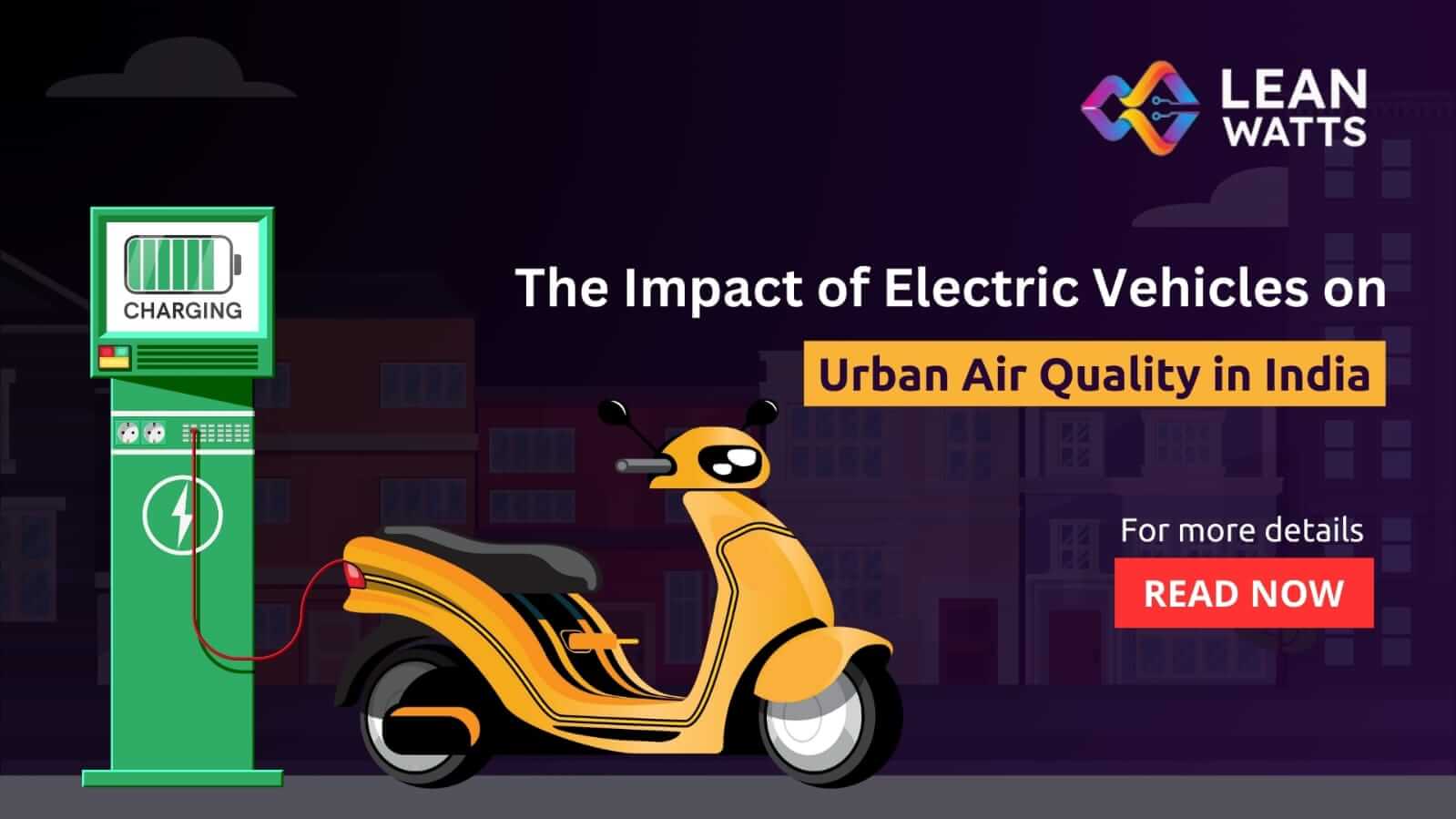
India, home to some of the world’s most polluted cities, is on the brink of an electric vehicle (EV) revolution. As the country grapples with severe air quality issues, the adoption of EVs presents a promising solution. At Leanwatts, we are committed to supporting this transition with efficient and reliable EV charging solutions, aiming to contribute to cleaner and healthier urban environments. In this blog, we explore the significant impact of electric vehicles on urban air quality in India.
The Air Quality Crisis in Urban India
India’s rapid urbanisation and industrialization have led to alarming levels of air pollution, particularly in cities. Vehicular emissions are a major contributor to this crisis, releasing pollutants such as nitrogen oxides (NOx), carbon monoxide (CO), and particulate matter (PM). These pollutants not only degrade air quality but also pose severe health risks to urban populations.
Key Factors Contributing to Urban Air Pollution:
- High Vehicle Density: Indian cities have a high density of vehicles, many of which are old and inefficient, contributing to substantial emissions.
- Traffic Congestion: Frequent traffic jams result in idling engines, which emit more pollutants.
- Fossil Fuel Dependence: The reliance on petrol and diesel fuels further exacerbates air pollution levels.
How Electric Vehicles Improve Urban Air Quality
Electric vehicles offer a cleaner alternative to conventional internal combustion engine (ICE) vehicles. By eliminating tailpipe emissions, EVs can significantly reduce the levels of harmful pollutants in urban areas.
Benefits of EVs for Urban Air Quality:
- Zero Tailpipe Emissions: EVs produce no exhaust emissions, which means they do not emit NOx, CO, or PM, directly improving air quality.
- Reduced Noise Pollution: EVs are quieter than ICE vehicles, contributing to lower noise pollution levels in cities.
- Energy Efficiency: EVs are more energy-efficient, converting a higher percentage of energy from the power grid to power at the wheels.
Government Initiatives and Policies
The Indian government has recognized the potential of EVs to address air quality issues and has implemented several initiatives to promote their adoption. These policies aim to make EVs more accessible and affordable for the average consumer.
Key Government Initiatives:
- Government Scheme: The Indian government has introduced the EMPS 2024 to promote the purchase of electric two-wheelers (e2W) and three-wheelers (e3W). With a budget of Rs 5 billion, it will replace the FAME-2 scheme and will be effective from April to July 2024, with the possibility of being replaced or extended thereafter.
- Tax Benefits: EV buyers can avail themselves of tax benefits, making the transition to electric vehicles more financially attractive.
- State-Level Initiatives: Various states have introduced their own policies to encourage EV adoption, including waivers on road tax and registration fees.
Leanwatts’ Role in Supporting Urban Air Quality
At Leanwatts, we are dedicated to supporting the growth of the EV ecosystem in India through our advanced charging solutions. By ensuring that EVs have access to reliable and efficient charging infrastructure, we help facilitate their adoption and contribute to cleaner urban air with affordable EV charger prices.
Our Key Contributions:
- Efficient Charging Solutions: Our portable chargers for EV’s are designed to maximise energy efficiency, reducing overall energy consumption and supporting sustainable practices.
- Robust Supply Chain: We ensure a consistent supply of high-quality components, enabling the rapid deployment of EV chargers in urban areas.”
- Innovation and R&D: Our commitment to continuous research and development allows us to stay at the forefront of EV charging technology, delivering solutions that meet the evolving needs of urban environments.
Case Study: Delhi’s Transition to Electric Mobility
Delhi, one of the most polluted cities in the world, is making significant strides towards cleaner air through the adoption of EVs. The Delhi government has introduced several initiatives to promote electric mobility, including subsidies for EV purchases and investments in charging infrastructure.
Conclusion
The adoption of electric vehicles holds immense potential for improving urban air quality in India. By reducing harmful emissions and supporting sustainable transportation, EVs can play a crucial role in addressing the country’s air pollution crisis. At Leanwatts, we are proud to be part of this transformative journey, providing the necessary charging solutions to power the transition to cleaner, greener cities.
For more information on how Leanwatts is contributing to a cleaner urban environment through our EV charging solutions, please contact us or visit our website. Together, let’s drive towards a sustainable and healthy future.
